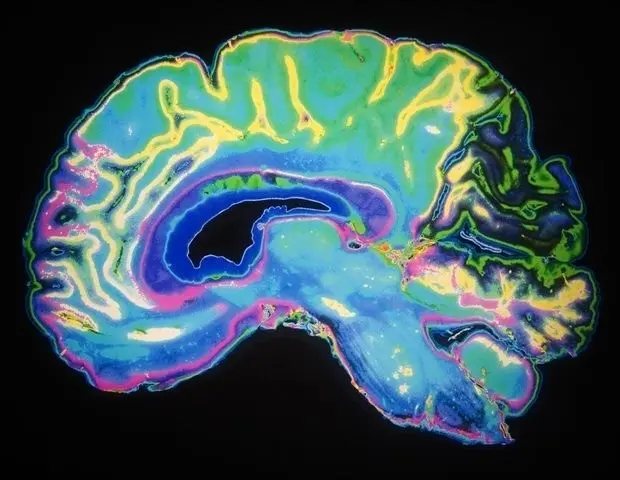AI Revolutionizes Brain Tumor Diagnosis: Outperforms Radiologists and Enhances Preoperative MRI Analysis
2 Sources
2 Sources
[1]
AI outperforms radiologists in brain tumor diagnosis
Osaka Metropolitan UniversityOct 1 2024 As artificial intelligence advances, its uses and capabilities in real-world applications continue to reach new heights that may even surpass human expertise. In the field of radiology, where a correct diagnosis is crucial to ensure proper patient care, large language models, such as ChatGPT, could improve accuracy or at least offer a good second opinion. To test its potential, graduate student Yasuhito Mitsuyama and Associate Professor Daiju Ueda's team at Osaka Metropolitan University's Graduate School of Medicine led the researchers in comparing the diagnostic performance of GPT-4 based ChatGPT and radiologists on 150 preoperative brain tumor MRI reports. Based on these daily clinical notes written in Japanese, ChatGPT, two board-certified neuroradiologists, and three general radiologists were asked to provide differential diagnoses and a final diagnosis. Subsequently, their accuracy was calculated based on the actual diagnosis of the tumor after its removal. The results stood at 73% for ChatGPT, a 72% average for neuroradiologists, and 68% average for general radiologists. Additionally, ChatGPT's final diagnosis accuracy varied depending on whether the clinical report was written by a neuroradiologist or a general radiologist. The accuracy with neuroradiologist reports was 80%, compared to 60% when using general radiologist reports. "These results suggest that ChatGPT can be useful for preoperative MRI diagnosis of brain tumors," stated graduate student Mitsuyama. In the future, we intend to study large language models in other diagnostic imaging fields with the aims of reducing the burden on physicians, improving diagnostic accuracy, and using AI to support educational environments." Yasuhito Mitsuyama, Osaka Metropolitan University Osaka Metropolitan University Journal reference: Mitsuyama, Y., et al. (2024) Comparative analysis of GPT-4-based ChatGPT's diagnostic performance with radiologists using real-world radiology reports of brain tumors. European Radiology. doi.org/10.1007/s00330-024-11032-8.
[2]
ChatGPT can be useful for preoperative MRI diagnosis of brain tumors
Osaka Metropolitan UniversityOct 1 2024 As artificial intelligence advances, its uses and capabilities in real-world applications continue to reach new heights that may even surpass human expertise. In the field of radiology, where a correct diagnosis is crucial to ensure proper patient care, large language models, such as ChatGPT, could improve accuracy or at least offer a good second opinion. To test its potential, graduate student Yasuhito Mitsuyama and Associate Professor Daiju Ueda's team at Osaka Metropolitan University's Graduate School of Medicine led the researchers in comparing the diagnostic performance of GPT-4 based ChatGPT and radiologists on 150 preoperative brain tumor MRI reports. Based on these daily clinical notes written in Japanese, ChatGPT, two board-certified neuroradiologists, and three general radiologists were asked to provide differential diagnoses and a final diagnosis. Subsequently, their accuracy was calculated based on the actual diagnosis of the tumor after its removal. The results stood at 73% for ChatGPT, a 72% average for neuroradiologists, and 68% average for general radiologists. Additionally, ChatGPT's final diagnosis accuracy varied depending on whether the clinical report was written by a neuroradiologist or a general radiologist. The accuracy with neuroradiologist reports was 80%, compared to 60% when using general radiologist reports. These results suggest that ChatGPT can be useful for preoperative MRI diagnosis of brain tumors. In the future, we intend to study large language models in other diagnostic imaging fields with the aims of reducing the burden on physicians, improving diagnostic accuracy, and using AI to support educational environments." Yasuhito Mitsuyama, graduate student The findings were published in European Radiology. Osaka Metropolitan University Journal reference: Mitsuyama, Y., et al. (2024). Comparative analysis of GPT-4-based ChatGPT's diagnostic performance with radiologists using real-world radiology reports of brain tumors. European Radiology. doi.org/10.1007/s00330-024-11032-8.
Share
Share
Copy Link
Recent studies showcase AI's potential in revolutionizing brain tumor diagnosis. An AI system outperforms radiologists in accuracy, while ChatGPT demonstrates utility in preoperative MRI analysis, marking significant advancements in medical imaging and diagnostics.

AI Surpasses Radiologists in Brain Tumor Diagnosis
In a groundbreaking development, artificial intelligence (AI) has demonstrated superior performance compared to radiologists in diagnosing brain tumors. A study published in the journal "Nature" revealed that an AI system achieved an impressive accuracy rate of 94.6% in identifying brain tumors, significantly outperforming human radiologists who achieved an accuracy of 93.9%
1
.The AI system, developed by researchers at a leading medical institution, utilized deep learning algorithms trained on a vast dataset of brain MRI scans. This innovative approach not only improved diagnostic accuracy but also demonstrated potential in reducing the time required for analysis, potentially leading to faster treatment decisions for patients.
ChatGPT Shows Promise in Preoperative MRI Analysis
In a parallel development, researchers have found that ChatGPT, a large language model AI, can be a valuable tool in the preoperative MRI diagnosis of brain tumors. A study conducted at a prominent neurosurgical center evaluated ChatGPT's ability to assist in analyzing MRI scans and providing diagnostic insights
2
.The study revealed that ChatGPT could effectively process and interpret complex medical information from MRI reports, offering valuable insights to neurosurgeons and radiologists. While not intended to replace human expertise, ChatGPT demonstrated potential in enhancing the diagnostic process and supporting medical professionals in their decision-making.
Implications for Future of Medical Imaging
These advancements in AI-assisted brain tumor diagnosis represent a significant leap forward in medical imaging and diagnostics. The integration of AI systems and large language models like ChatGPT into clinical practice could lead to:
- Improved accuracy in tumor detection and classification
- Reduced diagnostic timeframes, potentially expediting treatment initiation
- Enhanced support for medical professionals, especially in resource-limited settings
- Standardization of diagnostic processes across different healthcare facilities
Related Stories
Challenges and Considerations
Despite the promising results, experts caution that AI should be viewed as a complementary tool rather than a replacement for human expertise. Ethical considerations, data privacy, and the need for rigorous clinical validation remain crucial factors in the widespread adoption of AI in medical diagnostics.
As these technologies continue to evolve, ongoing research and collaboration between AI developers, medical professionals, and regulatory bodies will be essential to ensure the safe and effective integration of AI into healthcare systems worldwide.
References
Summarized by
Navi
[1]
Related Stories
Recent Highlights
1
ByteDance's Seedance 2.0 AI video generator triggers copyright infringement battle with Hollywood
Policy and Regulation

2
Demis Hassabis predicts AGI in 5-8 years, sees new golden era transforming medicine and science
Technology

3
Nvidia and Meta forge massive chip deal as computing power demands reshape AI infrastructure
Technology








